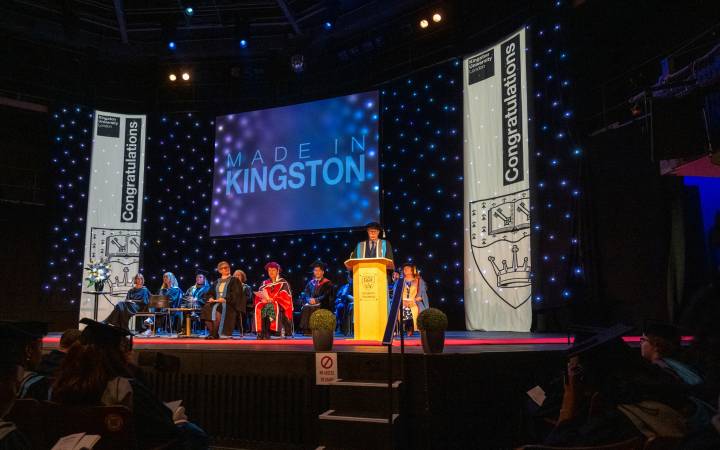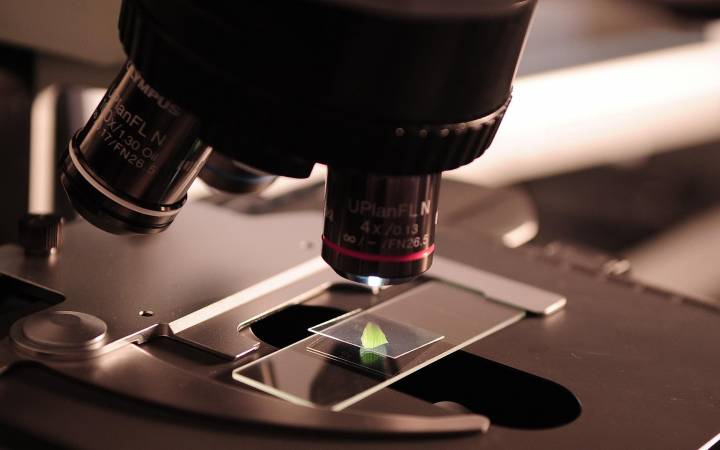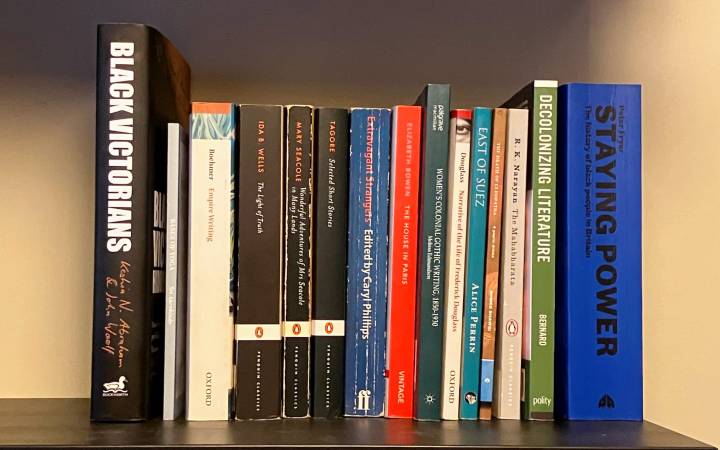Kingston University secures top honours in national Vitae Three Minute Thesis competition for second year running after student showcases advances in tissue engineering research
Posted Wednesday 28 September 2022
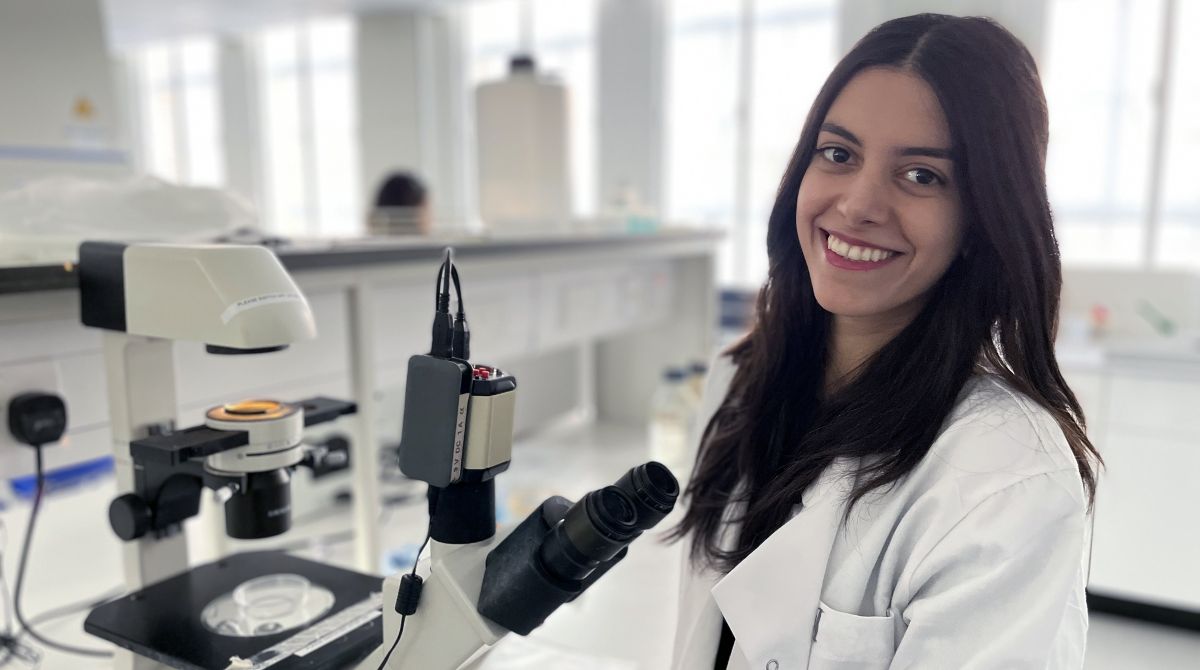
A Kingston University PhD student who is researching how smart materials could be used to replace damaged bones within the human body has been named winner of this year's national Vitae Three Minute Thesis competition.
Sadaf Akbari took home the prestigious academic trophy – the second Kingston University engineering student in successive years to win the contest – after impressing the judging panel with a 180 second presentation about how her tissue engineering research could help address the global donor shortage.
The Iranian student, who grew up in Dubai, outlined her use of computer simulations to model the performance of structures made from piezoelectric materials, which produce electrical charges under pressure. During her talk, she explained how she was exploring ways the smart materials could be combined with a patient's cells to grow into engineered tissue for implantation between sections of a bone to aid its repair.
Research students from 67 institutions across the United Kingdom and Ireland entered this year's national competition, which was rolled out globally after initially being developed by the University of Queensland in Australia. Each participant was challenged to deliver a verbal presentation on their research topic and its significance in just 180 seconds. After competing in quarter and semi-final events, Sadaf was named the judges' choice winner from six finalists, securing a prize of £3,000 in UK Research and Innovation grant funding for public engagement activities and an engraved trophy.
"This really has been a once-in-a-lifetime opportunity and my success hasn't sunk in yet," Sadaf said. "I loved watching the other presentations and it was amazing hearing the way the other finalists told their own stories. I've learned so much about how to communicate about my research through the Three Minute Thesis experience and everyone at Kingston University has been so supportive."
Sadaf had delivered a polished presentation, informed by professional practice and grounded in solid methodology and design, Dr Karen Clegg, a member of the judging panel who works at the University of York, said. "This was a really impressive piece of work, with delivery brought home through the use of slides and metaphor, and is really going to make an impact," she said.
It is the second year in a row a female engineering student from the University has won the judges' prize in the national competition, after Ana Pavlovic scooped the 2021 trophy for a presentation about her research into a sustainable future for concrete. "Ana's now moved into a career in industry and I'm so proud to have followed in her footsteps in winning the judge's prize," Sadaf said. "I'm excited to see where my research takes me, but I'd also really like to stay within academia after my PhD, potentially in research development."
Sadaf's PhD supervisor in the School of Engineering and the Environment, senior lecturer in solid mechanics Dr Payam Khazaeinejad, said one of the most impressive things about her pioneering research was the fact it required expertise in two distinct disciplines. "Sadaf has combined her biological science background with engineering skills developed during her Master's degree to explore an area that is really exciting for the future of medicine and healthcare," he said.
Postgraduate students entering the University round of Three Minute Thesis work with academic lead Professor Andrea Petroczi and former broadcast journalist and communications consultant Etienne Duval to hone their skills.
Coming just 12 months after the University's first national prize-winner in the competition, Sadaf's success demonstrated how the University was equipping the next generation of researchers with the confidence and ability to effectively communicate their work, Professor Petroczi said. "Sadaf delivered a presentation that really showcased her knowledge, talent and passion," she added.
Dean of Engineering, Computing and the Environment and Pro Vice-Chancellor Professor Amir Alani said the University's performance in the national competition demonstrated the calibre of research and support offered to students across the Faculty. "This outstanding achievement for one of our up-and-coming engineering researchers underlines our commitment to quality and our determination to ensure we provide a rich learning experience and developmental pathways for our students' future careers," Professor Alani said.
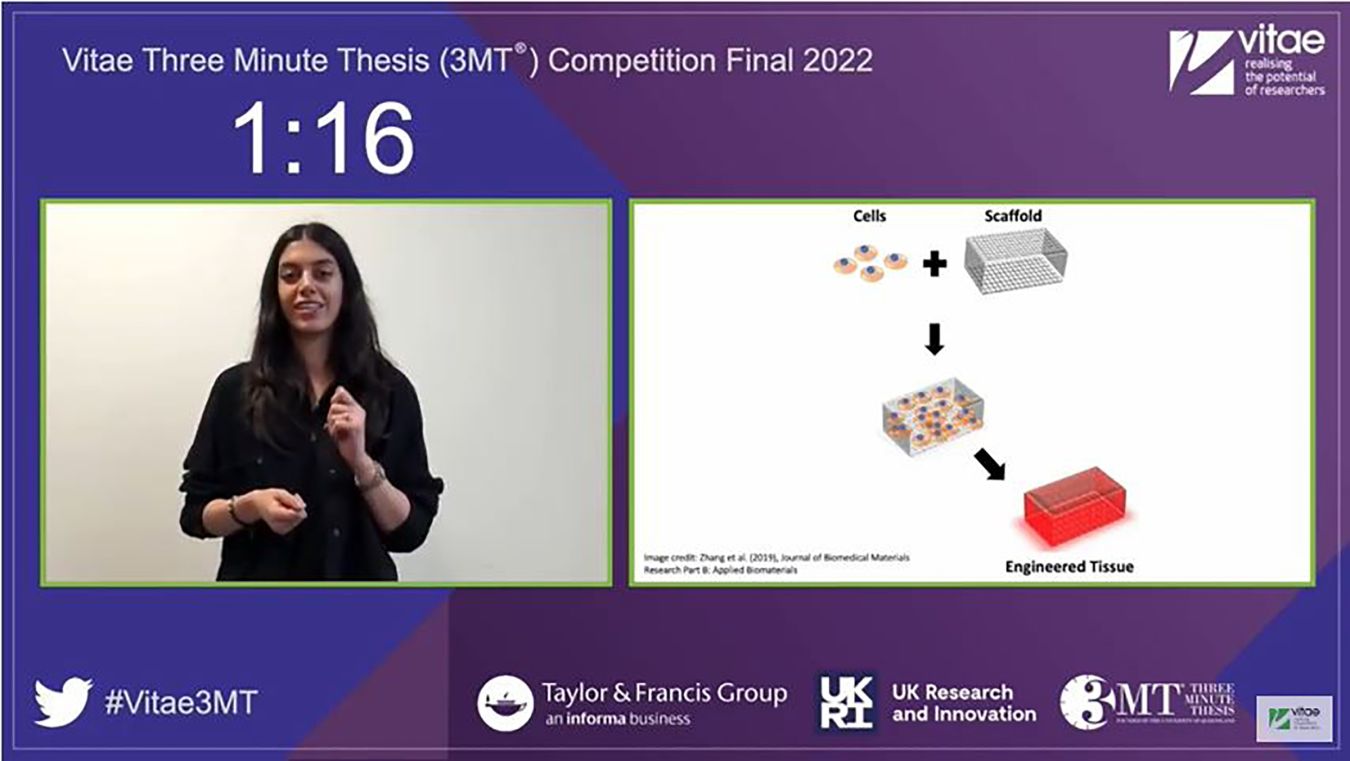 Sadaf Akbari delivers her award-winning presentation at the 2022 Vitae Three Minute Thesis competition.
Sadaf Akbari delivers her award-winning presentation at the 2022 Vitae Three Minute Thesis competition.Contact us
General enquiries:
Journalists only:
- Communications team
Tel: +44 (0)20 8417 3034
Email us
